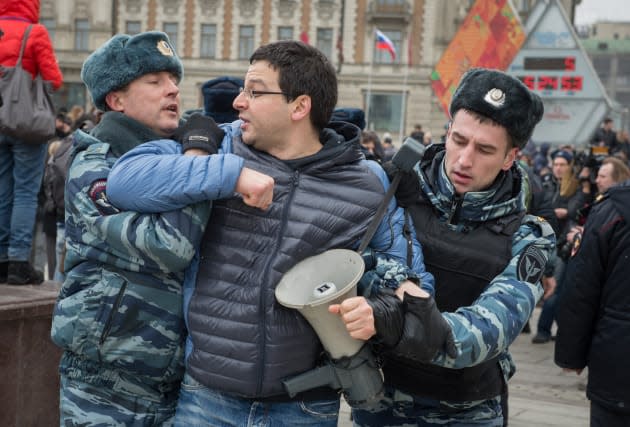Russia's new anti-extremism law targets online communications

What is "extremism"? That's up to Russian president Vladimir Putin to decide, according to a new amendment to Russian law announced this week by the Kremlin. The law gives Putin more flexibility to punish what he deems as "extremist" behavior -- on par with terrorism, legally -- and it works hand-in-hand with a redefinition of online activity. Previously, Russia defined such activity as "international computer communications"; that definition was amended to also include, "information telecommunication through the internet." This distinction is important, because it means not just websites, but also any form of online communication can be considered under Russia's "extremist" label.
It's yet to be seen how that redefinition applies to Russian citizens, but the amendment itself could cause a chilling effect on social media, comment sections and other communicatory online services. Notably, these services are exactly the place where much of the "Arab Spring" protests were organized.
If someone is deemed an "extremist," the punishment ranges from a hefty fine (approximately $8,500 - $15,000) to jail time (five to eight years, depending on the crime). Certainly more than enough to make you think twice about spreading political dissent, however tame it may be.
"Maybe I shouldn't post that snarky political tweet, eh?"
Though the government claims the amendment is meant to crack down on "extremism" from edge groups (think: neo-Nazis), so far it's mostly used such laws to crack down on dissent. For instance, it recently blocked opposition sites from several Putin critics, including forming chess grandmaster Gary Kasparov, after they called for protests.
And it's impossible to not connect the amendment with the past several years of increasingly scrutinous legal challenges for protesters in Russia. The crackdown in 2013 drove many protesters online, and forced them to employ new methods of communication typically outside of Russian government surveillance. As The Washington Post reported back in May 2013, "[protesters] who haven't been jailed or fled the country...communicate through more secure methods on the Internet."
[Image credit: DMITRY SEREBRYAKOV/AFP/Getty Images]

